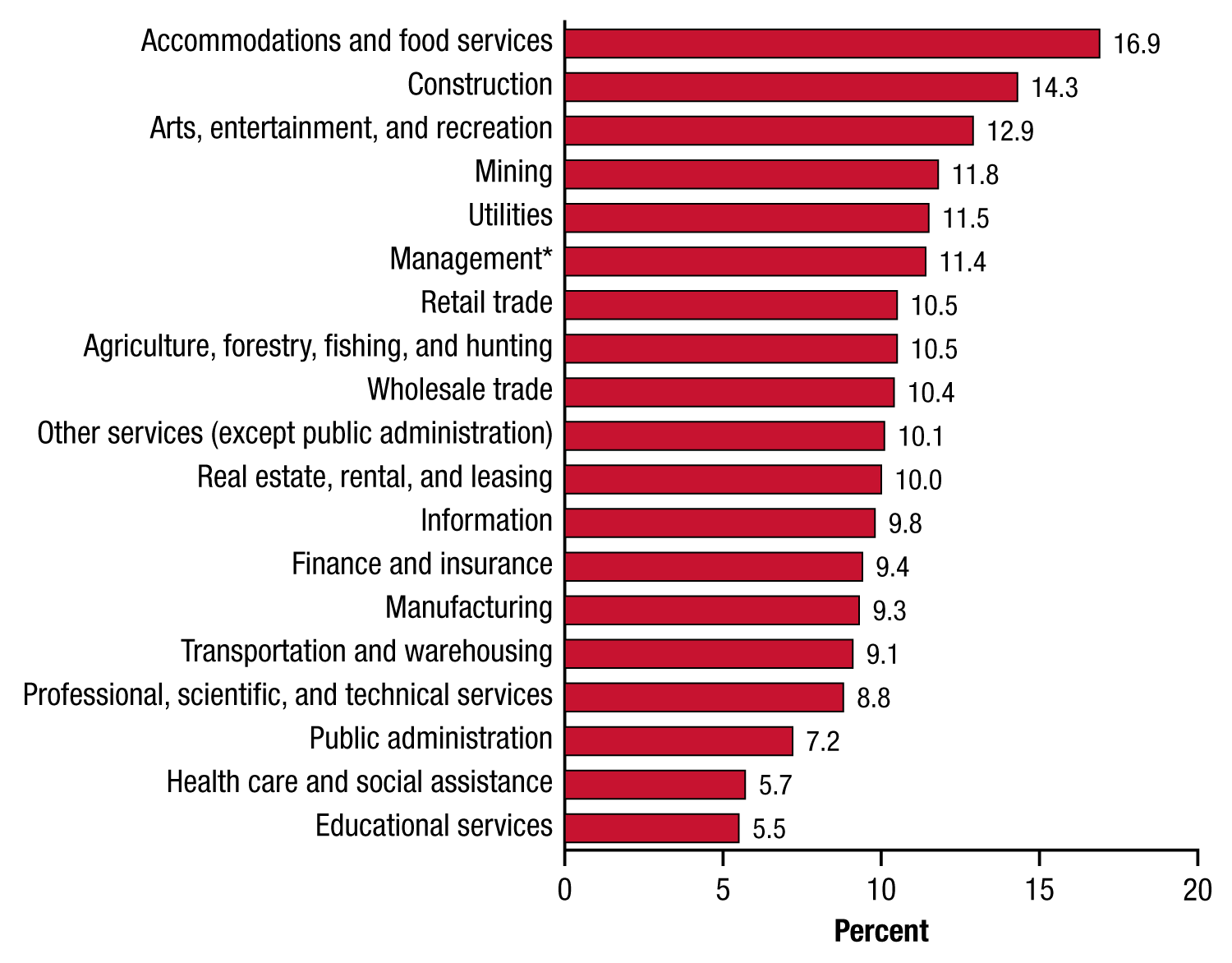Addiction affects people from all walks of life and in all professions. However, employees in certain fields report higher rates of substance abuse than others.
According to SAMHSA’s 2012 report on Substance Use and Substance Use Disorder by Industry, the five fields with the highest rates of substance use disorder are accommodations and food services (16.9% prevalence); construction (14.3% prevalence); arts, entertainment, and recreation (12.9% prevalence); mining (11.8% prevalence); and utilities (11.5% prevalence).
Figure 3. Past year substance use disorder among adults aged 18 to 64 employed full time, by industry category: combined 2008 to 2012
* The full title of this category is “Management of companies and enterprises, administration, support, waste management, and remediation services.” Source: SAMHSA (2012), Center for Behavioral Health Statistics and Quality, National Surveys on Drug Use and Health (NSDUHs) 2008 to 2010 (revised March 2012) and 2011 to 2012. Retrieved from https://www.samhsa.gov/data/sites/default/files/report_1959/ShortReport-1959.html
There are a lot of ways that your job can influence your substance use. You may find that you have access to addictive substances including alcohol and prescription drugs through your everyday job responsibilities (including serving drinks or dispensing controlled substances). Or addictive substances might be provided to you as a perk (including in green rooms or after a shift at work). It’s also possible that workplace injuries introduce you to addictive substances. The following industry-specific recovery resources were developed for and/or by professionals in a variety of fields. This is not an exhaustive list—if your profession is not represented on this list, let us know!
-
Union members including autoworkers, trade professionals, and construction workers may find resources and support through their locals or Employee Assistance Programs. Union reps can help coordinate time off work for treatment and other needs. Families may also have access to these resources.
-
Lawyers and judges, first responders, and licensed healthcare professionals can find 12-step meetings and inpatient or outpatient treatment programs specific to members of their fields. State licensing boards and Physician Health Programs in Michigan, California, New Jersey, and other states also have programs for healthcare professionals to seek treatment, maintain their employment and licenses, and ensure public safety.
-
Food and beverage and hospitality industry employees can find support from other industry workers at Ben’s Friends meetings online and in multiple states.
-
Touring musicians can find local support and resources through Detroit, MI-based Passenger Recovery.









